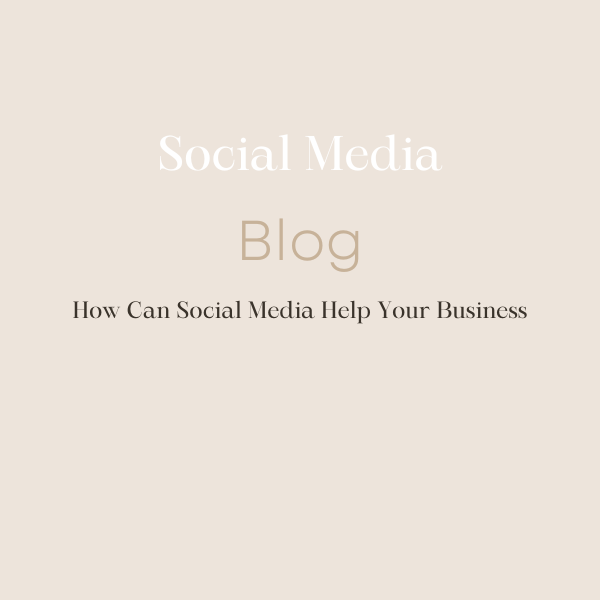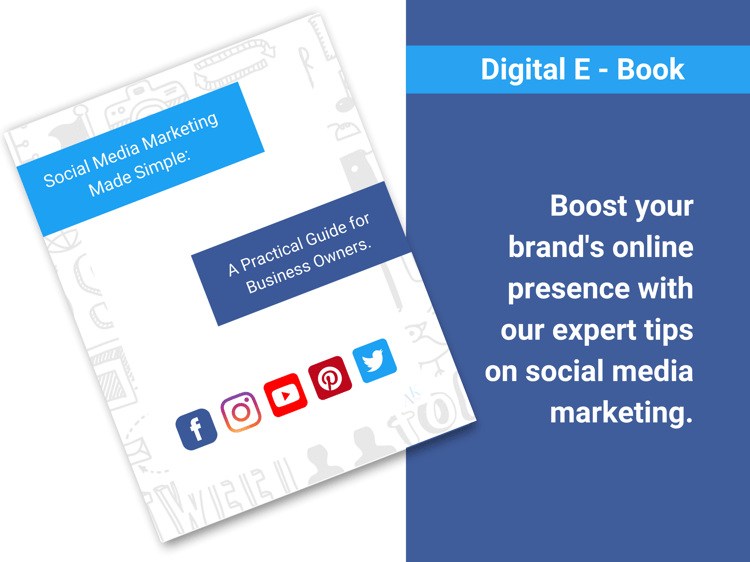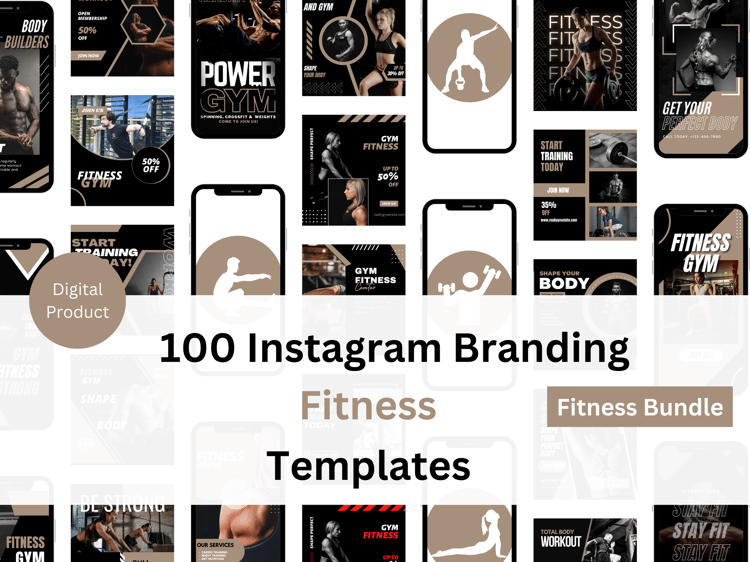Social media has revolutionized the way businesses interact with their customers. With millions of people actively using social media platforms, it has become a crucial marketing tool for businesses of all sizes. From small startups to large corporations, social media can help businesses to build brand awareness, engage with their customers, and ultimately drive sales.
Here are some ways that social media can help your business:
- Increased Brand Awareness
Social media is a powerful tool for increasing brand awareness and visibility. When businesses share content on social media platforms like Facebook, Twitter, LinkedIn, and Instagram, they can reach a larger audience than they might through traditional advertising methods like print ads or television commercials.
Social media allows businesses to connect with potential customers in a more personal way.
By creating and sharing valuable and engaging content, businesses can build a loyal following of people who are interested in what they have to say. Over time, these followers can become brand advocates, sharing your content with their own followers and helping to spread the word about your business.
One of the most important benefits of increased brand awareness is that it can help to establish your business as a thought leader in your industry. By consistently sharing high-quality content that provides value to your audience, you can position your business as an expert in your field. This can help to build trust with potential customers and create a positive brand image.
For example, if you run a software company, you could use social media to share blog posts, infographics, and videos that explain how your software works and how it can benefit businesses in your industry. By providing this type of valuable information, you can establish your business as a leader in the software industry and build a loyal following of people who are interested in your products and services.
All things considered, social media provides businesses with a unique opportunity to increase brand awareness and visibility. By sharing valuable content that resonates with your target audience, you can build a loyal following, establish your business as a thought leader in your industry, and ultimately drive more traffic and sales.
- Targeted Advertising
Targeted advertising on social media platforms allows businesses to create and deliver customized advertisements to specific groups of people who are most likely to be interested in their products or services. This is achieved through data analysis and insights gathered from user behavior, interests, demographics, and other relevant data points.
Social media platforms such as Facebook, Twitter, Instagram, and LinkedIn provide businesses with a range of tools and options to create targeted advertisements. These platforms allow businesses to define their target audience based on specific demographics such as age, gender, geographic location, and interests.
For instance, a business that sells sports equipment can create ads that specifically target sports enthusiasts based on their interests and demographics. They can also set the location to target users who live near their physical store or those who are interested in similar businesses nearby.
Another great benefit of targeted advertising is that it allows businesses to track their advertising performance in real-time. Social media platforms provide businesses with analytics tools that track impressions, clicks, conversions, and other metrics. This enables businesses to monitor their advertising campaigns and optimize them for better results.
By leveraging targeted advertising on social media platforms, businesses can maximize the effectiveness of their advertising budget. They can avoid spending money on ads that do not resonate with their target audience and instead focus their efforts on creating ads that deliver results.
In summary, targeted advertising on social media platforms provides businesses with a cost-effective and efficient way to reach their target audience. It enables businesses to create and deliver customized ads to specific groups of people based on their interests, demographics, and behavior. By utilizing the analytics tools provided by social media platforms, businesses can optimize their advertising campaigns for better results and ultimately drive more traffic and sales.
- Customer Engagement
Customer engagement is a critical aspect of social media marketing. Engaging with customers on social media platforms allows businesses to build strong relationships with their audience, create a sense of community, and foster customer loyalty.
One of the primary ways businesses can engage with customers on social media is by responding to comments and messages. When customers leave comments or send messages on social media, it's essential for businesses to respond promptly and with a personalized touch. This shows customers that their feedback is valued, and it helps to build a positive relationship with them.
Another way businesses can engage with customers on social media is by creating and sharing content that resonates with their audience. This can include blog posts, videos, images, and other types of content that provide value to customers. By creating content that is informative, educational, or entertaining, businesses can attract and retain their target audience, building a loyal following.
Social media platforms like Twitter, Facebook, and Instagram also offer features like polls, surveys, and quizzes that businesses can use to engage with their audience. These tools allow businesses to ask their audience questions and get real-time feedback, which can help to inform business decisions and improve customer satisfaction.
In addition to these methods, social media can also be used to showcase customer success stories, highlight customer reviews, and offer promotions or discounts to loyal customers. This creates a sense of community and belonging, fostering customer loyalty and encouraging repeat business.
Overall, customer engagement on social media is crucial for businesses that want to build strong relationships with their customers. By responding to comments and messages, creating and sharing valuable content, and utilizing the many engagement tools available on social media platforms, businesses can connect with their audience on a deeper level, building trust and loyalty over time.
- Increased Website Traffic
Social media can be a powerful tool for driving website traffic. By sharing links to your website on social media platforms, you can increase the visibility of your website and attract more visitors. Here are some ways that social media can help you increase website traffic:
- Share blog posts and articles: If you have a blog on your website, you can share your blog posts and articles on social media platforms to attract more readers. By sharing valuable and engaging content, you can encourage people to visit your website and explore your other offerings.
- Promote products and services: Social media provides businesses with a platform to promote their products and services. By sharing product photos, videos, and descriptions, businesses can attract potential customers and encourage them to visit their website to learn more or make a purchase.
- Run promotions and giveaways: Social media platforms are a great place to run promotions and giveaways. By offering discounts or free products to social media followers, businesses can incentivize people to visit their website and make a purchase.
- Utilize paid advertising: Social media platforms offer businesses a range of advertising options to drive website traffic. By creating targeted ads that are displayed to specific groups of people, businesses can increase the visibility of their website and attract more visitors.
- Engage with your audience: Social media provides businesses with a platform to engage with their audience in real-time. By responding to comments, messages, and mentions, businesses can build relationships with their followers and encourage them to visit their website to learn more.
In conclusion, social media can be a powerful tool for increasing website traffic. By sharing valuable content, promoting products and services, running promotions and giveaways, utilizing paid advertising, and engaging with your audience, businesses can attract more visitors to their website and ultimately drive more conversions and sales.
- Real-Time Feedback
Real-time feedback is an important benefit of social media for businesses. Social media platforms allow businesses to receive feedback and engage with their customers in real-time, providing them with valuable insights that can help them improve their products, services, and customer experience. Here are some ways that businesses can benefit from real-time feedback on social media:
- Address customer issues promptly: Social media provides businesses with a platform to address customer issues and complaints in real-time. By responding to customers promptly and providing them with solutions to their problems, businesses can improve customer satisfaction and loyalty.
- Gather customer feedback: Social media platforms provide businesses with a direct line of communication with their customers. Businesses can use this opportunity to gather feedback on their products and services and use this feedback to make improvements and adjustments to their offerings.
- Test new products and services: Social media provides businesses with a platform to test new products and services in real-time. By sharing new offerings on social media, businesses can gauge customer interest and gather feedback before launching them to the wider market.
- Monitor brand sentiment: Social media platforms allow businesses to monitor brand sentiment and track what customers are saying about their brand in real-time. This allows businesses to identify potential issues and opportunities and respond promptly to any negative comments or feedback.
- Gather insights on competitors: Social media provides businesses with a platform to monitor their competitors and gather insights on their strategies and offerings. This information can be used to inform their own strategies and offerings and stay ahead of the competition.
In general, real-time feedback on social media is a valuable tool for businesses to improve their products, services, and customer experience. By addressing customer issues promptly, gathering feedback, testing new products and services, monitoring brand sentiment, and gathering insights on competitors, businesses can stay ahead of the competition and provide a better customer experience.
To sum up, social media can be a powerful tool for businesses of all sizes. By leveraging social media platforms, businesses can increase brand awareness, engage with their customers, and ultimately drive sales.
So if you haven’t already, it’s time to start using social media to grow your business!








